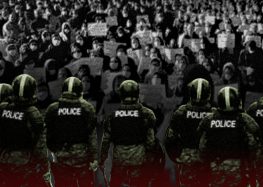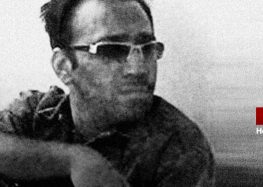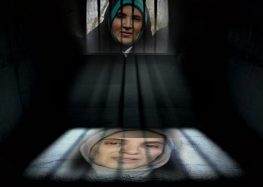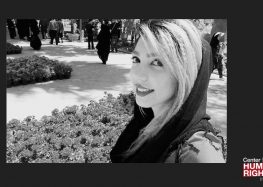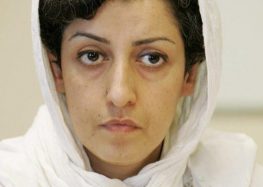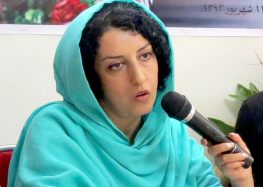Kept in Solitary as Punishment, Says Imprisoned Activist’s Wife

Saeed Madani
Political activist Saeed Madani, 74, remains in Evin Prison’s Ward 209 after having completed his interrogations. Mansoureh Ettefagh, Madani’s wife, told the International Campaign for Human Rights in Iran that he has likely undergone torture during his detention. She also said that his interrogators are keeping Madani in solitary confinement “to punish him.”
On 7 January 2012, authorities arrested researcher, sociologist and member of the Nationalist-Religious Front Saeed Madani outside of his home in Tehran. Since his arrest Saeed Madani has not been allowed to see his lawyer.
Mansoureh Ettefagh told the Campaign that Madani’s interrogators continue to illegally detain him in Ward 209:
Unfortunately, though his interrogations have been completed and the Prosecutor and the Investigative Judge from Branch 2 of Evin Prison Court have ordered his transfer to the General Ward, he has remained inside Ward 209 on request from his interrogators and ‘case specialists’ who are monthly asking for an extension of his ‘temporary detention.’ His interrogators wish to punish him because Saeed has not accepted the scenario they have built for accusing him. They have not accepted his interrogation sheets and would not allow him to be transferred to the General Ward. In fact they don’t want to accept the truth about him, they only want him to accept what they are saying against him.
“When I asked Saeed whether he had been beaten, he did not deny it,” said Ettefagh, The first few months were very hard for him, until he managed to improve his conditions after he went on a hunger strike. His interrogation sessions have lasted as long as 15 hours,” she added.
When asked about Madani’s charges, Ettefagh told the Campaign:
Because his lawyer has not yet been informed of his charges, I cannot answer that question exactly. But during this period he has been accused of planning to start a website against the Islamic Republic of Iran, and of trying to hold gatherings on this website. Or he has been accused of getting paid by foreigners. But none of these charges are true. His interrogators were unable to find anything other than his known activities, so they have created this scenario against him and now they insist that he accepts it.
Madani was one of several members of the Nationalist-Religious group arrested in March 2000. At the time, Madani was sentenced to four years in prison on charges of “membership in illegal groups,” “collusion with intent to commit a crime,” and “propagating against the regime.” Judge Haddad of Branch 26 of Tehran’s Revolutionary Court, issued prison sentence sof 4 to 11 years, bans on public speech and assembly, and bans on political activity for 5 to 10 years for the entire group. Madani was released on $200,000 bail after serving a year in prison, five months of which were spent in solitary confinement.
“Unfortunately, he is not in good physical shape. Prisoners inside Ward 209 are only allowed three half-hour fresh air breaks per week in a very small area, where prisoners are unable to exercise. Their cell, where prisoners live together, is only 8 square meters. Because there is not enough space to move around, he suffers from pain in his knees, arms, and legs,” said Mansoureh Ettefagh. Ward 209 of Evin Prison is illegally under the authority of the Intelligence Ministry, and not the Prisons Organization. The Campaign has reported various instances of torture allegations from within this ward.
“I hope there will be conditions whereby the Judiciary would have sufficient power and influence to enforce the law, so that interrogators and case specialists are not so powerful to do things against the Judiciary’s orders. Right now, interrogators have a lot more power than the Prosecutor and other judicial authorities,” said Mansoureh Ettefagh.

